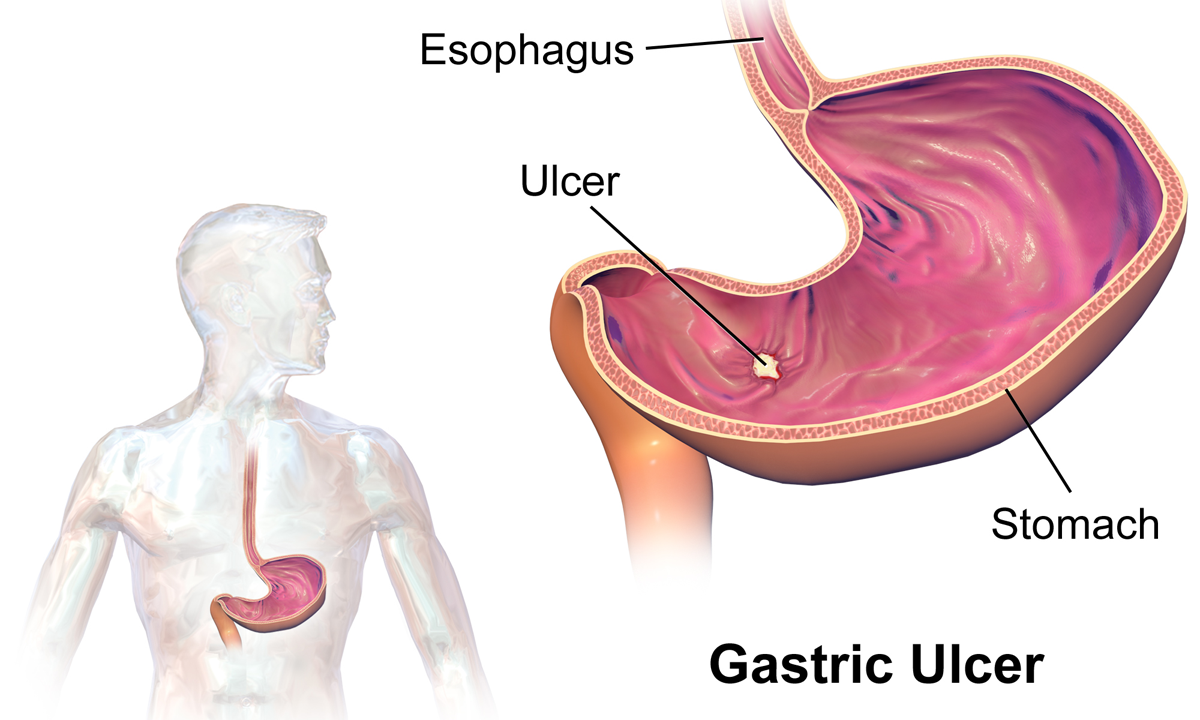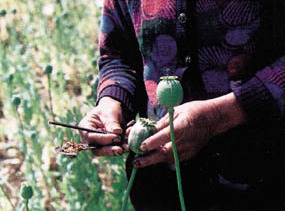|
El ángel Exterminador
''The Exterminating Angel'' ( es, El ángel exterminador, links=no) is a 1962 Mexican surrealist film written and directed by Luis Buñuel, starring Silvia Pinal, and produced by Pinal's then-husband Gustavo Alatriste. It tells the story of a group of wealthy guests who find themselves unable to leave after a lavish dinner party, and the chaos that ensues. Sharply satirical and allegorical, the film contains a depiction of the aristocracy that suggests they "harbor savage instincts and unspeakable secrets".Roger Ebert''The Exterminating Angel'', RogerEbert.com, 11 May 1997. In 2004, ''The New York Times'' included the film in a list of "The Best 1,000 Movies Ever Made". The film was adapted into an opera of the same name in 2016. Plot After a night at the opera, Edmundo and Lucía Nóbile are having 18 wealthy acquaintances over for a dinner party at their lavish mansion. The servants inexplicably begin to leave as the guests are about to arrive and, by the time the meal is o ... [...More Info...] [...Related Items...] OR: [Wikipedia] [Google] [Baidu] |
Luis Buñuel
Luis Buñuel Portolés (; 22 February 1900 – 29 July 1983) was a Spanish-Mexican filmmaker who worked in France, Mexico, and Spain. He has been widely considered by many film critics, historians, and directors to be one of the greatest and most influential filmmakers of all time. When Buñuel died at age 83, his obituary in ''The New York Times'' called him "an iconoclast, moralist, and revolutionary who was a leader of avant-garde surrealism in his youth and a dominant international movie director half a century later". His first picture, '' Un Chien Andalou''—made in the silent era—is still viewed regularly throughout the world and retains its power to shock the viewer, and his last film, '' That Obscure Object of Desire''—made 48 years later—won him Best Director awards from the National Board of Review and the National Society of Film Critics. Writer Octavio Paz called Buñuel's work "the marriage of the film image to the poetic image, creating a new realit ... [...More Info...] [...Related Items...] OR: [Wikipedia] [Google] [Baidu] |
The Exterminating Angel (opera)
''The Exterminating Angel'' is an English-language opera in three acts, with music by Thomas Adès, and libretto by Tom Cairns in collaboration with Adès. The opera is based on the 1962 film of the same name by Luis Buñuel. The opera, Adès' third, was a joint commission between the Salzburg Festival, the Royal Opera House, Covent Garden, the Metropolitan Opera and the Royal Danish Opera. The opera received its world premiere on 28 July 2016, at the Haus für Mozart, Salzburg. Adès' first-ever commission for the Salzburg Festival, the Salzburg production received four performances. The UK premiere was at the Royal Opera House, Covent Garden, on 24 April 2017. The North American premiere took place on 26 October 2017 at the Metropolitan Opera. For all of these stagings, Cairns was the stage director, with sets and costumes by Hildegard Bechtler, lighting by Jon Clark, videography by Tal Yarden, and choreography by Amir Hosseinpour. Adès had been interested in adapting the ... [...More Info...] [...Related Items...] OR: [Wikipedia] [Google] [Baidu] |
Antonio Bravo
Antonio Bravo (12 May 1906 – 28 February 1992) was a Spanish-born Mexican film and television actor.Agrasánchez, Jr. p.159 He appeared in more than a hundred and forty productions during a lengthy career. Selected filmography * '' Beautiful Mexico'' (1938) * ''I'm a Real Mexican'' (1942) * ''El Ametralladora'' (1943) * ''The Escape'' (1944) * '' Saint Francis of Assisi'' (1944) * ''Madam Temptation'' (1948) * '' The Great Madcap'' (1949) * ''Philip of Jesus'' (1949) * '' A Galician Dances the Mambo'' (1951) * '' The White Rose'' (1954) * ''The Price of Living'' (1954) * ''Drop the Curtain ''Drop the Curtain'' (Spanish: ''Abajo el telón'') is a 1955 Mexican comedy film directed by Miguel M. Delgado and starring Cantinflas, Christiane Martel and Beatriz Saavedra.Lezcano, p. 98. The film's art direction was by Gunther Gerszo. Plot A ...'' (1955) * '' A Few Drinks'' (1958) * '' El Esqueleto de la señora Morales'' (1960) * '' The Miracle Roses'' (1960) * '' Love in the Shado ... [...More Info...] [...Related Items...] OR: [Wikipedia] [Google] [Baidu] |
Freemason
Freemasonry or Masonry refers to fraternal organisations that trace their origins to the local guilds of stonemasons that, from the end of the 13th century, regulated the qualifications of stonemasons and their interaction with authorities and clients. Modern Freemasonry broadly consists of two main recognition groups: * Regular Freemasonry insists that a volume of scripture be open in a working lodge, that every member profess belief in a Supreme Being, that no women be admitted, and that the discussion of religion and politics be banned. * Continental Freemasonry consists of the jurisdictions that have removed some, or all, of these restrictions. The basic, local organisational unit of Freemasonry is the Lodge. These private Lodges are usually supervised at the regional level (usually coterminous with a state, province, or national border) by a Grand Lodge or Grand Orient. There is no international, worldwide Grand Lodge that supervises all of Freemasonry; each Grand ... [...More Info...] [...Related Items...] OR: [Wikipedia] [Google] [Baidu] |
Peptic Ulcer Disease
Peptic ulcer disease (PUD) is a break in the inner lining of the stomach, the first part of the small intestine, or sometimes the lower esophagus. An ulcer in the stomach is called a gastric ulcer, while one in the first part of the intestines is a duodenal ulcer. The most common symptoms of a duodenal ulcer are waking at night with upper abdominal pain and upper abdominal pain that improves with eating. With a gastric ulcer, the pain may worsen with eating. The pain is often described as a burning or dull ache. Other symptoms include belching, vomiting, weight loss, or poor appetite. About a third of older people have no symptoms. Complications may include bleeding, perforation, and blockage of the stomach. Bleeding occurs in as many as 15% of cases. Common causes include the bacteria ''Helicobacter pylori'' and non-steroidal anti-inflammatory drugs (NSAIDs). Other, less common causes include tobacco smoking, stress as a result of other serious health conditions, Behçet's ... [...More Info...] [...Related Items...] OR: [Wikipedia] [Google] [Baidu] |
Luis Beristáin
Luis Beristáin (1918–1962) was a Mexican film and television actor.Edwards p.154 Selected filmography * '' Tragic Wedding'' (1946) * '' Hypocrite'' (1949) * '' The Devil Is a Woman'' (1950) * ''Women's Prison'' (1951) * ''Crime and Punishment'' (1951) * '' The Martyr of Calvary'' (1952) * ''The Plebeian ''The Plebeian'' (Spanish: ''El plebeyo'') is a 1953 Mexican drama film directed by Miguel M. Delgado and starring Rosita Arenas Rosa "Rosita" Arenas (born 19 August 1933) is a Mexican actress and singer whose film career was most prominent d ...'' (1953) * '' My Mother Is Guilty'' (1960) References Bibliography * Edwards, Gwynne. ''A Companion to Luis Buñuel''. Tamesis Books, 2005. External links * 1918 births 1962 deaths Mexican male television actors Mexican male film actors Male actors from Mexico City {{Mexico-actor-stub ... [...More Info...] [...Related Items...] OR: [Wikipedia] [Google] [Baidu] |
José Baviera
José Baviera (17 August 1906 – 13 August 1981) was a Spanish film actor. He appeared in more than 190 films and television shows between 1924 and 1979. He starred in Luis Buñuel's 1962 film ''The Exterminating Angel''. Selected filmography * '' The Cursed Village'' (1930) * '' Barrios bajos'' (1937) * '' Jesús de Nazareth'' (1942) * '' The Shack'' (1945) * '' María Magdalena: Pecadora de Magdala'' (1946) * '' The Private Life of Mark Antony and Cleopatra'' (1947) * '' Reina de reinas: La Virgen María'' (1948) *'' Dueña y señora'' (1948) *''La familia Pérez''(1949) * '' Lola Casanova'' (1949) * ''Philip of Jesus'' (1949) * '' The Magician'' (1949) * '' The Devil Is a Woman'' (1950) * '' The Doorman'' (1950) * '' El derecho de nacer'' (1951) * '' A Galician Dances the Mambo'' (1951) * '' Desired'' (1951) * '' The Martyr of Calvary'' (1952) * ''The Plebeian'' (1953) * '' When You Come Back to Me'' (1953) * ''The Price of Living'' (1954) * ''It Happened in Mexico'' (19 ... [...More Info...] [...Related Items...] OR: [Wikipedia] [Google] [Baidu] |
Jacqueline Andere
María Esperanza Jacqueline Andere-Aguilar (born August 20, 1938) is a Mexican actress. Life and career Andere was born in a Jewish family located Mexico City on August 20 1938. Her appearances in telenovelas began with 1960's ''Vida por vida (Mexican telenovela), Vida por Vida'', and one of her major roles as a villainess was in ''La Madrastra (2005 telenovela), La Madrastra'' opposite Victoria Ruffo and ''Peregrina''. She also starred in ''Soy Tu Dueña'' opposite ''Lucero (entertainer), Lucero'' and ''Fernando Colunga''. She was married to José María Fernández Unsáin for more than 30 years, from 1967 to his death in 1997. They had one child together, Chantal Andere, who is also an actress. The two starred in 2002's telenovela ''La Otra'', where Chantal played the younger version of the character her mother played. Jacqueline has been active since 1959. She has been chosen as one of the killers in the popular series ''Mujeres Asesinas (Mexico), Mujeres Asesinas''. One o ... [...More Info...] [...Related Items...] OR: [Wikipedia] [Google] [Baidu] |
Valkyrie
In Norse mythology, a valkyrie ("chooser of the slain") is one of a host of female figures who guide souls of the dead to the god Odin's hall Valhalla. There, the deceased warriors become (Old Norse "single (or once) fighters"Orchard (1997:36) and Lindow (2001:104).). When the are not preparing for the events of Ragnarök, the valkyries bear them mead. Valkyries also appear as lovers of heroes and other mortals, where they are sometimes described as the daughters of royalty, sometimes accompanied by ravens and sometimes connected to swans or horses. Valkyries are attested in the '' Poetic Edda'' (a book of poems compiled in the 13th century from earlier traditional sources), the '' Prose Edda'', the (both by Snorri Sturluson) and the (one of the Sagas of Icelanders), all written—or compiled—in the 13th century. They appear throughout the poetry of skalds, in a 14th-century charm, and in various runic inscriptions. The Old English cognate term appears in several Old ... [...More Info...] [...Related Items...] OR: [Wikipedia] [Google] [Baidu] |
Te Deum
The "Te Deum" (, ; from its incipit, , ) is a Latin Christian hymn traditionally ascribed to AD 387 authorship, but with antecedents that place it much earlier. It is central to the Ambrosian hymnal, which spread throughout the Latin Church with other parts of the Milanese Rite in the 6th to 8th centuries. It is sometimes known as the Ambrosian Hymn, although authorship by Saint Ambrose is unlikely. The term Te Deum can also refer to a short religious service (of blessing or thanks) based upon the hymn. History Authorship of the hymn is traditionally ascribed to Saint Ambrose (died 397) or Saint Augustine (died 430). In 19th-century scholarship, Saint Hilary of Poitiers (died 367) and Saint Nicetas of Remesiana (died 414) were proposed as possible authors. In the 20th century, the association with Nicetas has been deprecated, so that the hymn, while almost certainly dating to the 4th century, is considered as being of uncertain authorship. Authorship of Nicetas of ... [...More Info...] [...Related Items...] OR: [Wikipedia] [Google] [Baidu] |
Opiate
An opiate, in classical pharmacology, is a substance derived from opium. In more modern usage, the term ''opioid'' is used to designate all substances, both natural and synthetic, that bind to opioid receptors in the brain (including antagonists). Opiates are alkaloid compounds naturally found in the opium poppy plant ''Papaver somniferum''. The psychoactive compounds found in the opium plant include morphine, codeine, and thebaine. Opiates have long been used for a variety of medical conditions with evidence of opiate trade and use for pain relief as early as the eighth century AD. Opiates are considered drugs with moderate to high abuse potential and are listed on various "Substance-Control Schedules" under the Uniform Controlled Substances Act of the United States of America. In 2014, between 13 and 20 million people used opiates recreationally (0.3% to 0.4% of the global population between the ages of 15 and 65). According to the CDC, from this population, there were 47,0 ... [...More Info...] [...Related Items...] OR: [Wikipedia] [Google] [Baidu] |
Pietro Domenico Paradies
Pietro Domenico Paradies (also Pietro Domenico Paradisi) (170725 August 1791) was an Italian composer, harpsichordist and music teacher, most prominently known for a composition popularly entitled "''Toccata in A''", which is, in other sources, the second movement of his Sonata No. 6. A reviewer of a modern edition of his sonatas, all first edited by the composer, noted in passing "Paradies (never Paradisi, it seems)" suggesting that Paradisi might be a modern adaptation. Life and work Paradies was born in Naples. Probably a student of Nicola Porpora, he dedicated himself at first to composing for the theater. He spent a few years around 1740 in Venice, where he taught and wrote music at the Ospedali Grandi. There, he composed two semi-dramatic, occasional serenatas, including a serenata in honor of Frederick Christian, the Prince of Saxony and Heir to Poland. In 1746 he moved to London, where he became known as a teacher of harpsichord and singing; among his students was Gertrud ... [...More Info...] [...Related Items...] OR: [Wikipedia] [Google] [Baidu] |
.jpg)

.jpg)


